After seeing an inspiring story shared by old friend and colleague, Jamie Raynor, about an alumna of Western Carolina University working as nurse during this pandemic, I had questions.You see, this incredible story is one of many uncovered by their Chatty Cat Phonathon callers during their recent “check-in” calls. I wanted to know how they took their phonathon remote, continuing to provide student employment during this crisis while also doing important work for the university. Here are my questions and Jamie’s answers: Tell me about how WCU is utilizing their phonathon callers during the pandemic. "Within the Western Carolina University Division of Advancement, we’re using our best callers to conduct ‘check-in’ calls with our alumni during this quarantine time. They are sharing the student experience and listening to the alumni experience during these short, scripted calls." What sort of stories have the callers uncovered and how is the university using those stories?"The callers are finding that the alumni are pleasantly surprised by the call, and many are eager to chat and share ideas, stories, and experiences. The callers flag records of alumni who are doing unique and/or front line COVID work and those are shared with me for story leads. I work with our Marketing and Communications colleagues on bringing the strongest of these story leads to them on a weekly basis. Completed alumni story profiles are used on our alumni website (alumni.wcu.edu), our social media channels, and our alumni e-newsletter. Most of the stories that our Chatty Cat callers hear are about our alumni who are teachers, nurses, public administrators, hospital administrators, researchers, and manufacturers (particularly in areas for parts for ventilators and PPE, personal protective equipment), and we’ve had some who are specialized in unique areas like funeral home owners and leaders in cruise line sanitation. The Chatty Cats have also spoken to several alumni who serve on our Board of Trustees, and those Trustees have provided very complimentary notes on their chats with these students. Overall these calls strengthen our Catamount community and allow for relationship building around a common struggle for us all. For those alumni who have said ‘how can we help’ the student callers reference one of our student emergency funds and guide the alumni to give.wcu.edu/relief for gifts." Now to get down in the weeds a bit: what technology are you using to empower the callers to work from home. How are they being trained and supervised via distance?What software are we currently using for the call center/remote calling?
Is there anything else you want to share about calling during this pandemic? "Yes, our development officers have each used this same ‘check-in’ call model to call through their portfolios, and most have followed these up with emails for next steps. Our front-line fundraisers have noted the great ability to learn more about their donors and prospects with these simple calls, and have been encouraged by the donor’s willingness to really connect over the phone. Most have been happy to have someone to talk to. Our Director of Donor Relations is mailing handwritten notes to hundreds of donors who give unrestricted gifts as an extra touch-point during this time as well. Our Alumni Engagement Office has partnered with Development Staff to create Alumni Zoom Socials, which we launched with our Triangle Alumni Club (Raleigh, Durham, and Chapel Hill area) last week. We have 16 additional Zoom social hours scheduled for the next 3 weeks to connect with our alumni." Is there anything else you want to share about fundraising during this challenging time?We have partnered with our Office of Community Service and Engagement to work with our local Jackson County non-profit organizations along with our Student Emergency Fund to raise money for COVID related needs on May 5, 2020 during #GivingTuesdayNow. We will stand up a webpage on the WCU website to share the WCU Foundation mission and student emergency fund giving link along with our non-profit partners’ mission and giving links, so our WCU alumni and friends can support our community in the area of their choice. Also, our development officers started with phone calls, emails, and handwritten notes to their donors for stewardship and prospects for cultivation but have now moved to scheduling Zoom meetings for moving the donor relationship forward towards solicitations and gift negotiations. About Jamie Raynor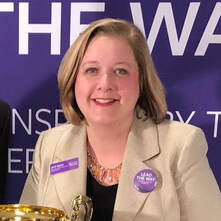 As a higher education professional for over 17 years, Jamie Raynor gained early experience in academic affairs for several years before turning her focus and her profession to development and advancement initiatives. In her temporary role, she currently serves as the interim vice chancellor for WCU's Division of Advancement for Advancement Services, Alumni Engagement, and Development staff, also serving on the Chancellor's Executive Council. Her permanent role as Assistant Vice Chancellor includes the supervision of major, planned, and annual giving professionals in the development office. She also manages a portfolio of corporations, foundations, and individuals to secure major and planned gifts. Have you been utilizing the unique talents of your phonathon callers during this crisis? Why or why not? Did this case study make you feel any differently about trying it out? If social distancing measures persist into the Fall semester, how do you plan to handle your phonathon? Let me know down in the comments. And if you liked this content, please subscribe to Real Deal Fundraising. You'll get my FUNdraising Friday emails, which are jam-packed with interesting, useful, and funny content to keep you sharp and motivated! Cheers, PS - If you liked this article, you might like:
PPS - Want to use your time isolating at home to become an All-Star fundraiser? Join me for my new course, All-Star Annual Giving. Registration just opened! All-Star Annual Giving is a fully online 12-week course with 9 modules covering all areas of annual giving strategy and execution. If you want to roll into the semester with a fully fledged plan to raise more money than you've ever raised before in your annual giving programs, you need to be in this course. Connecting with a donor or potential donor is so vital before you ask for a gift. It's like removing many of the roadblocks between you and that "YES!" response you want.
People want to give to people they like. It's not much of a secret. Ultimately, as a fundraiser you are a conduit for the relationship between that donor and the institution (not with you personally) but they must enjoy speaking with you to want to continue a relationship with the institution. This is an important skill for any fundraiser to develop, from phonathon callers on up to executive directors, deans and development officers. I have been to MANY call centers where they use the same tired rapport-building questions year after year after year. We cannot let this happen. No one wants to spend their precious time telling a new person why they haven't been back to campus lately just like they did last year. Bad rapport-building has the opposite effect on the donor than that which we wish to cultivate. The first rule of building rapport is it must be DIALOG not MONOLOGUE. You must ask questions that will solicit meaningful conversation and back and forth. You (no matter if you are a student caller or the Vice President of Advancement) must not deliver a litany of great-stuff-happening-at-our-institution without stopping for breath. So, following this rule, we must construct meaningful rapport building questions. The second rule about rapport building is that these questions get stale. Every year (at least) new rapport builders should be generated and put into rotation. Here is some guiding criteria for generating these questions. Rapport building questions should:
What are some examples of strong rapport-building questions?
Does your rapport building need a refresh? Do you have some favorite rapport-building questions that I forgot to mention on my list? Comments and questions are, as always, welcomed and encouraged! Cheers, Jessica Cloud PS - If you liked this post, you might also like these:
PPS - If you found this article helpful, please comment and let me know. Also subscribe to Real Deal Fundraising so you don't miss a post! You'll get my guide to Call Center Games for Free!
Don’t get me wrong. I am a fan and advocate of automated calling software. And I’ve been spoiled in my career, working for large state universities with the resources to either outsource the calling program or to have an in-house program with appropriate calling software.
In the past, I would cringe when a colleague would tell me they were running a manual/paper phonathon. But there’s a reason why they say necessity is the mother of invention. I now work for a small independent seminary that is on a shoestring budget. This summer, I did some analysis and determined that what the program really needed was a phonathon. I decided this for a few reasons:
You really only need 3 things to have a phonathon:
CALLERS I figured out my maximize number of callers and caller hours that I could afford to pay based on a competitive hourly rate for the location (Berkeley, CA). Then I set about recruitment. Here are some of the graphics I used to recruit students callers.
I used my 3 favorite interview questions for student callers. You can read about those here. I hired 4 students and 1 graduate who wanted to volunteer her time as a service to the school.
EQUIPMENT Now I needed equipment. At first, I was thinking through how much long distance would cost and whose offices we could use in the evenings. Then I went back to drawing board: Why was thinking landlines when I preach all the time that cell phones are the future of phonathon? I decided to go mobile. I ordered simple, Samsung flip phones which had a headphone jack so we could utilize headsets. I bought these Voistek noise cancelling headphones that would work with the phones and free the caller to move anywhere in the room. I bought some of the headsets with only one ear pad and some with two. The callers overwhelming preferred the double headset. The headsets, while very affordable ($29) also had good sound quality. Here are the links for the phones and headsets I selected. (Yes, these are affiliate links. I've actually used these products and I'm sure they'll help you start a pop-up phonathon. If you purchase, I get a small percentage to keep the choice content coming here on Real Deal Fundraising. Fair trade, huh?)
These phones are already configured to work with a Verizon go-phone plan, which was far cheaper than long distance fees. They are also used phones so they are super-cheap – less than $17 each. My phonathon campaign was scheduled to be one month long so we paid for one month of prepaid phone access: $50 for each phone. Bonus: when you go to the Verizon store to sign up for your multiple prepaid, burner phone plans, you feel like a bad guy from a Law and Order SVU episode!
Total for each phone “station”: $96 Total to equip my five callers: $480 OVERALL SHOESTRING BUDGET I also spent $100 on 4, $25 gift certificates to use as weekly incentives for performance. Overall my budget looked like this:
PROSPECTS As for data, I pulled the prospects via queries in Raiser’s Edge and then used that spreadsheet to create calling sheets via a mail merge. We went through a couple of iterations to get the information in the most intuitive place for the callers but ultimately it worked well. Overall, the program raised over $15,000 which was a great return on investment and we added over 25 new recurring gift donors as well. If your institution doesn’t have a huge budget but needs the personalized contact that a phonathon program provides, you can create a “pop-up” phonathon program on a shoestring budget that is efficient and effective. Do you outsource, use automated software or have a manual phonathon? Or do you need to start a pop-up phonathon for your institution? Comments and questions are, as always, welcomed and encouraged! Cheers, Jessica Cloud PS - If you liked this post, you might also like these:
PPS - If you found this article helpful, please comment and let me know. Also subscribe to Real Deal Fundraising so you don't miss a post! You'll get my guide to Call Center Games for Free!
Once you’ve been told never to call back, been hung up on countless times, and told “no” in so many variations ranging from “I’d love to, but I can’t afford it” to an expletive-filled, irrational rant, you just don’t worry about it anymore. Callers carry this confidence into their working life whether they remain in fundraising or not. It’s like a secret superpower from working in the call center.
Not only do former phonathon callers have mad phone skills (friendly, engaging, polite, etc.) they have a rocking perspective on how to approach difficult situations. Smile and you will change your chances of getting what you want. Believe you can do it and you can.
I still talk on the phone for hours a day as part of my job. Even though I’m an extravert, after I’m done with work, I’d rather have my nails pulled out than talk on the phone for “fun”. This pattern plays out amongst my friends who worked in call centers too.
Either way, though, call center work can take a naturally competitive person and turn them into an Olympic champion of smack-talk. If you were a caller, you wouldn’t think twice about kicking your friends off the island if it meant they stood between you and a $25 Red Lobster gift card. Former phonathon callers exhibit this good-natured ruthlessness well beyond college and employ this trait in many different fields of endeavor.
Doing all of this when you know that your supervisor is listening in and you’re being evaluated, also no sweat. Phonathon callers can get it all done flawlessly.
Everyone who has been a caller has selected the wrong script, got lost in the middle of a sentence, drawn a blank on the name of the institution they are calling for, or called the prospect by the wrong name. If you take yourself too seriously, you just won’t survive in phonathon. A sense of humor is a must.
Student supervisors and call center managers give callers tips on everything from overcoming objections to how many times you say “umm” in a sentence to the quality of your voice itself. You can spot a former phonathon caller anywhere because they come to crave the kind of pointed and applicable feedback they got in the call center. They crave it because when implemented it immediately impacted results in a positive way.
Many great callers learned to read or complete homework assignments while the phone was dialing. You also learn to prep your script, ask your supervisor a question on mute, and place a bookmark in your chemistry book all while your prospect tells you about the Homecoming court of 1954. When you’re done with all that, you seamlessly transition back into the conversation with a “How wonderful! Mrs. Smith, I don’t want to take up too much more of your time tonight. Let me tell you why I’m calling…”
In the call center, we become emotionally dependent upon thermometers, countdowns, and other displays of our progress and performance. For me, it manifests in the use of my bullet journal with lots of colors and goal charts. Likewise, I love old school, goofy clip art with simple cartoonish lines. I like to use them in presentations to make folks laugh but also it brings me back to my call center days when results were often tied to being as goofy as possible to get the attention of the group.
This benefits these individuals later in their life because they aren’t afraid to negotiate for a raise, ask a spouse about preparing a will or be persistent to get a sale. I hope you had as much fun reading this post as I did putting it together. What other traits do you think come from working in a call center or in fundraising in general? If you were a phonathon caller, do these seem true for you? Comments and questions are, as always, welcomed and encouraged! Cheers, Jessica Cloud PS - If you liked this post, you might also like these:
PPS - If you found this article helpful, please comment and let me know. Also subscribe to Real Deal Fundraising so you don't miss a post! You'll get my guide to Call Center Games for Free! You know what kind of person makes a great phonathon caller. It's easy to spot characteristics such as confidence, sincerity, and enthusiasm in any conversation. But the most important variable to the success of a phonathon caller (or any fundraiser) isn't personality or even work ethic, it's RETENTION. Whether or not they stick with job will largely determine their success and yours.
So, in an interview process, the content of your questions should be about the potential longevity of the candidate. You can assess the other qualitative characteristics while you are talking about other things. I'm hiring right now to build a phonathon program for the seminary I work for and these are the only interview questions I am using and I know I'm getting the best team players with this method. I've used these three questions for a long time and they help you find awesome callers who will stick with it and learn to be outstanding young fundraisers. In fact, they are actually great questions to ask candidates for any position. None of them are specific to call center or fundraising. They are all about how the candidate views work and keeping their commitments.
Better yet, do they indicate an interest in the business of philanthropy or an understanding of how the skills gained by working at the call center will help them long term?
Other answers will be more vague and abstract. I won’t say that these are not a good match for call center work, but these more abstract students may need more structure and guidance. If, however, you see an over-involved, over-scheduled student who can’t answer this question concretely, that’s a problem.
Those who have a high degree of personal integrity and can articulate their values in a clear way are loathe to quit when they have committed to something important. They can become the trusted core of your team. What are your favorite interview questions and why? Try these questions out and see if you don't make your interview process more efficient by both saving time and getting better callers through the hiring process. If you liked this post, you will probably love my book How to Staff Your Phonathon Super-Fast, Seven Secrets to Fill the Seats. It's full of information on how to find your staffing targets, generate tons of applications, interview fast, hire for retention and keep great callers! Purchase your copy today. And subscribe to Real Deal Fundraising so you don't miss a single post! 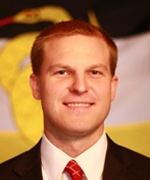 This week's Thursday feature is an interview with Markus Jones, Senior Vice President for Development of the Sigma Nu Educational Foundation. His organization launched their first ever phonathon last year and I asked him some questions about the process and what the results have been for his organization.
Phonathon fundraising represented a method of communication that I felt our organization had not fully explored in the past. Likewise, it offered a unique opportunity to reach non-donors, friends and parents of our members, whom we had never previously contacted. As a major gift fundraiser, I also saw the Phonathon as a means of prospect generation for future campaign efforts. We needed to resupply the pipeline for our mid-range and major gift officers to cultivate in the very near future. We have been very carefully referring outliers from this effort to those gift officers.
Additionally, we were met with similar concerns from other members of the staff who are not directly involved with the fundraising operations. I worked with our communications team and other fundraising staff to develop internal communications that addressed their concerns in advance of launching the campaign. We shared FAQs, details about database segments, call schedules, and sample call scripts with everyone on staff prior to making calls. We also invited them to actively engage with donors who may have questions or concerns along the way. After the first week of calling, we distributed “canned responses” to commonly heard objections to the staff assigned to the front desk at the Fraternity Headquarters. We also created a page on our website dedicated to the Phonathon which carefully identified the company we contracted to conduct the calls, constituents who would receive the calls, why we were calling, and the timeframe in which calls would be made. This also helped to mitigate some push-back we received from outside constituents and, I believe, added some validity to the callers’ efforts.
Side note: Our vendor employs a very diverse group of callers and actually worked with us to recruit collegiate members from one of our Sigma Nu chapters near the call center. The feedback from the callers was also really great. They all enjoyed working on the campaign and speaking with our alumni on the phone. This was very encouraging for future partnerships.
More about Markus Jones: Prior to joining the staff of the Sigma Nu Educational Foundation, Markus served as a Development Officer at the University of Southern Mississippi Foundation. He began his career in nonprofit development and volunteer management following Hurricane Katrina as the Director of Marketing and Resource Development for the United Way of South Mississippi in Gulfport, MS. Markus has worked in the nonprofit development field for his entire professional career and strives to continue this path in the future. He holds a bachelor's degree in Advertising from The University of Southern Mississippi and in his spare time Markus enjoys books, the outdoors, volunteering and traveling. ast week, I argued that predictive modeling is not as intimidating as it sounds. In fact, you don't need a consultant to build your models and you are the best person to do it.
You are the best person to build your projections for a couple of reasons: 1) You do/should have the most knowledge about how your program has historically performed and your strategies going forward. 2) You will be the person working with those projections throughout the fundraising year as living documents to guide your path to optimum performance. To work best with the predictive model, you should build it and understand it from the ground up. A great report (if you can easily get it) is a projections versus actual report that shows you segment-by-segment, side-by-side, where you thought you would be and where you are currently. But if you can't get a report like this designed, no worries. You can easily have your projections (your predictive model) in one hand and your up-to-date actual results in another. You should do a P v. A (Projections versus Actual) analysis at least quarterly but ideally monthly. My recommendation would be to work up to more frequent analysis if you aren't currently doing it, as it can be overwhelming and time-consuming in the beginning. The benefits are abundant, though, as I will articulate. Here's how this works on the segment level: I'll use phonathon segments as an example, but this could be anything (direct mail, email, leadership giving, etc.) Say you are getting close to finished with the College of Business but it doesn’t look like you are going to reach your total dollars. You can now use your projections to pinpoint where the downturn occurred and proposed pointed solutions. (See charts above.) You notice that you are very close to finished (completion rate) and therefore you aren't going to have that many more calls in order to make up lost ground. The next thing that pops out to you is that contact rate didn't perform to expectations. This signals one major thing: lack of data integrity. Lastly, the participation rate for this group is much lower than projected. You have isolated the two major issues with the College of Business results thus far. If you never had the projections, your report to the Dean of the College of Business would probably simply be, "I'm sorry but we are going to fall short this year." Or worse, you might feel the need to follow that up with a bunch of speculations and excuses. Instead, you are armed with information and can break bad news with prepared data-driven solutions. So, a conversation with the Dean of the College of Business might go like this: “It appears that we may fall about $2,000 short of our goal for your college. This is due in part to our contact rate being lower than expected for the college overall and a slightly lower participation rate than we hoped for in the future donors. So, I would recommend that we send out a 'where are you?' email to try and get updated phone numbers for all of your graduates and we may lower the ask amounts for the future donors to help improve acquisition for this group.” This works the same way with your higher-ups. You will be able to show which metrics and schools are under-performing and explain the statistics rather than provide anecdotes or excuses. It works the exact same way if your results are amazing! You are able to report on where and how you beat the goal and therefore where the areas of opportunity are for the future. This perspective can change the course of your career because you will become the most trusted person in your organization. You are informed, realistic, and have solutions and analysis galore! Try this with your next project. Let me know how it goes. I've named this column "Thoughts for Thursday" and mostly it gives me a weekly space to bring up whatever topics I want to discuss. But, this week, I asked myself, "What's really on my mind?" I have a few things that have been buzzing around my brain lately.
But, I'd also like to hear from you. What are you struggling with? What solutions are you lacking right now? What trends are you baffled by? What ideas are you really digging right now? Please comment and let me know. Here are some of the bees in my bonnet:
Again, what's really on your mind? Watched any good TED Talks about philanthropy and fundraising lately? Read any inspirational articles? What's the question you wish you had an answer to right now? If you haven’t heard, Stanford University ruffled some feathers last week by announcing that is doing away with its phonathon. Here's the announcement from Stanford. Donor Relations Guru and Annual Giving Network wrote about it.
Here’s my take. Stanford is not the first to get rid of their phonathon and they won’t be the last. Does that mean that phonathon is dead? No way! One friend of mine said “So It Begins” on Facebook about this because with such a high profile university ditching their phonathon, annual giving specialists all over the country will have to go into a new cycle of justifying their programs to administrators who think that their universities are also Stanford. The truth is that Stanford could afford to stop fundraising full stop and they wouldn’t lose any market share for years. Eventually revenues might drop, but it would take a while. The loss of new fundraising revenue wouldn’t seriously impact their rankings or ability to recruit students for decades probably. Stanford has two very powerful things that your university probably doesn’t have that make it possible for them to say to donors: “You meet us on our terms. We don’t feel like calling you anymore.” Or as they put it in their paperwork. “Give online. It’s the modern way to give!”
Donor Relations Guru makes the point that we should be multichannel and of course we should. Giving donors options and honoring their choices should be part of your plan. But if you aren’t Stanford and you don’t have a long game plan to replace the things that phonathon brings you (up-to-date data, donors, positive public relations, dollars, and donor education) proceed with caution. Don’t get rid of any medium that you can afford that gives your donors another way to give. I work for an institution that stopped communicating with donors via phone a while back and now we have to rebuild and repair those relationships. Phone calls have significant advantages that haven’t changed:
Imagine if we just gave up trying to visit major donors and just decided to tell them all to give online. I don’t think we would clutch our pearls. We would laugh and wish that institution the best in their experiment. (I guarantee that political candidates aren't even considering giving up their "Get Out the Vote" phonathons!) Personal interaction works best. We know this because fundraising is about relationships. But it is also about asking. Phonathon allows us to do both and reach a large amount of people at the same time. No other medium does this. If your phonathon isn’t working, it probably isn’t because the medium is dying. It’s more likely that the problem originates from poor caller training/management, you have poor contact rates or ironically, you aren’t calling enough to make your fixed costs worthwhile. There are solutions to all of these issues. Motivation goes far beyond call center games. Games are one of the most visible manifestations of external motivation in the call center but I have seen too many well-meaning managers become over-fixated on games. It is important to have other things undergirding your motivational strategy so that the games become only the icing on the cake.
Make sure your call center has:
All of these things come before the nightly games. It is also important that games not detract from the purpose of the calling shift, which is to raise money efficiently. Games should never take time away from calling or create a situation where callers are disturbed or distracted when talking with prospects. That said, call center games are a cornerstone of what makes having a such a hard job FUN! You can get some great ideas for new call center games (and new twists on old favorites) by subscribing to Real Deal Fundraising. My "15 Best Call Center Games" guide is my gift to you for subscribing to this blog. Click here or the button below to sign up for updates today. |
Jessica Cloud, CFREI've been called the Tasmanian Devil of fundraising and I'm here to talk shop with you. Archives
June 2024
Categories
All
|
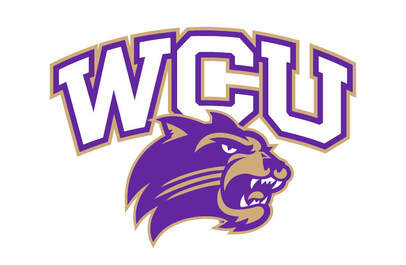

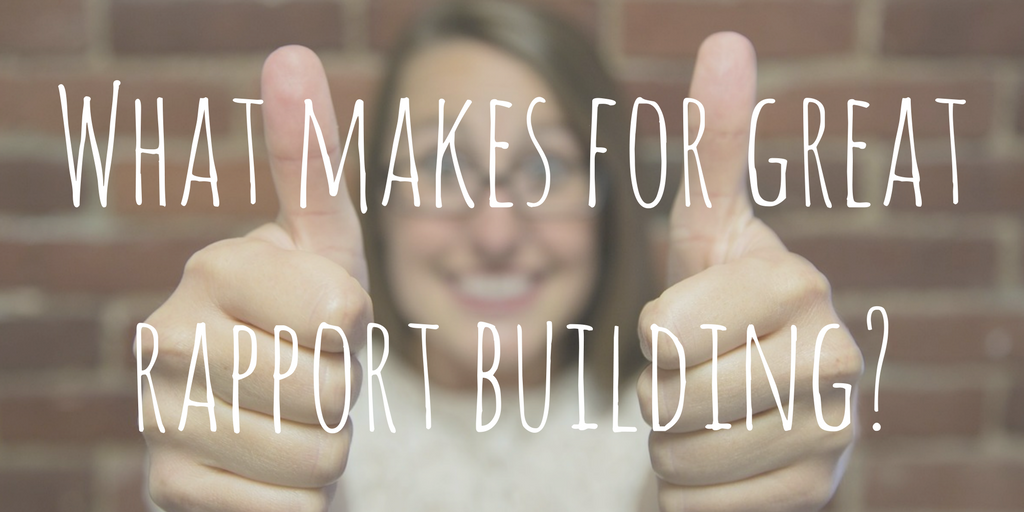
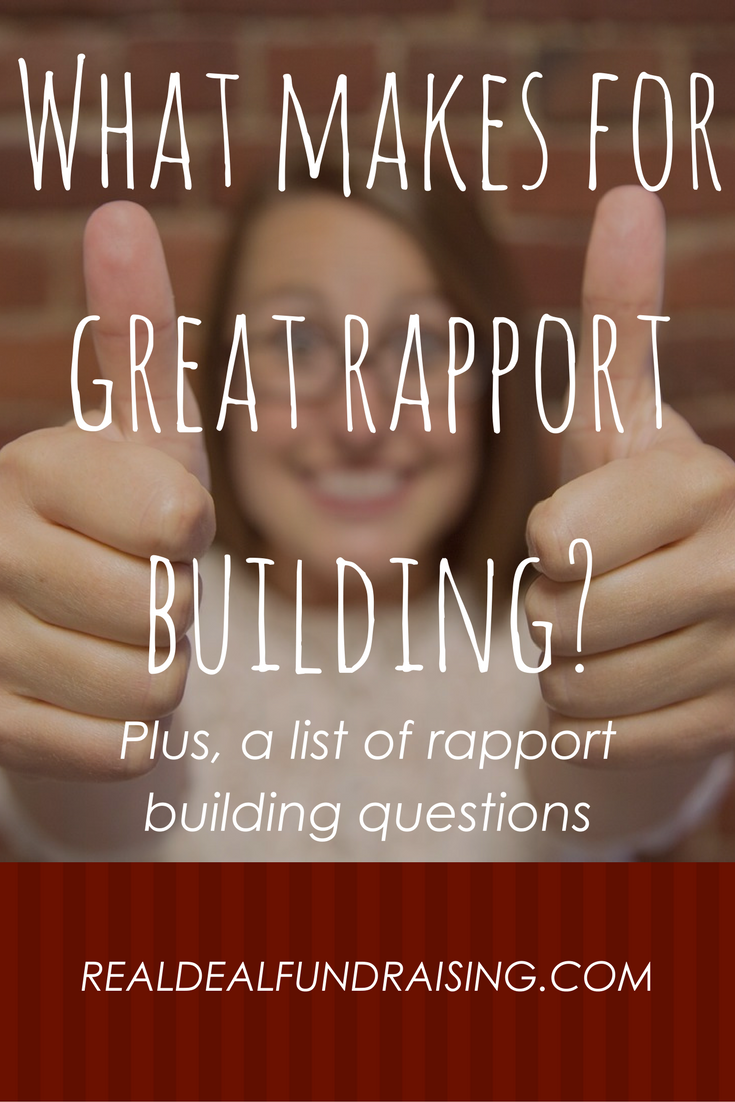
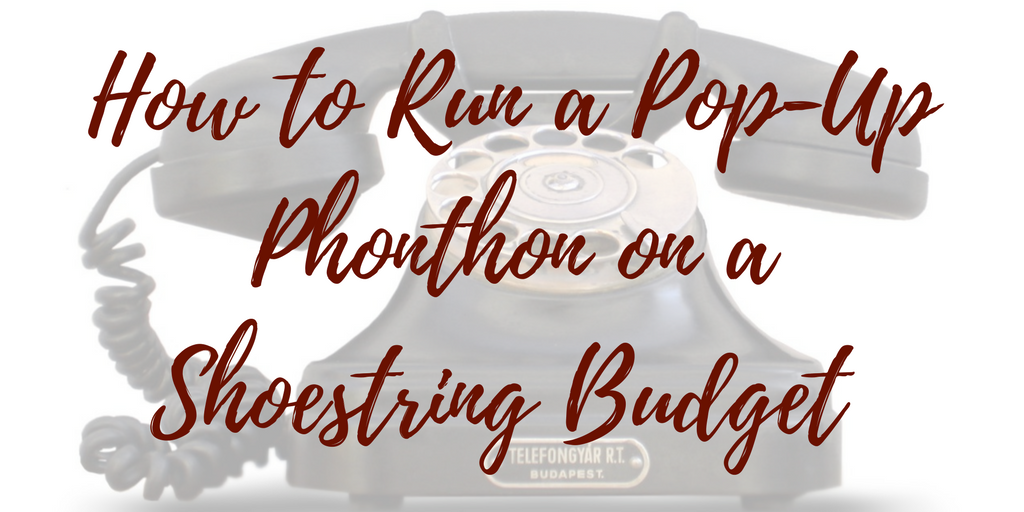


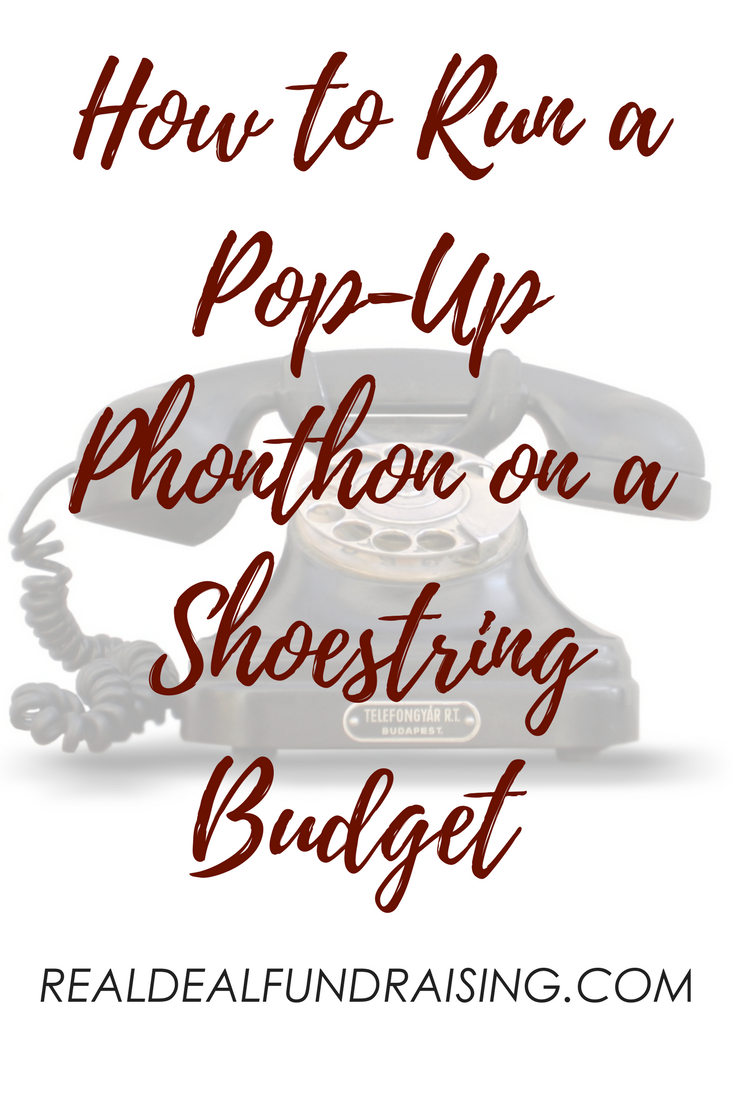


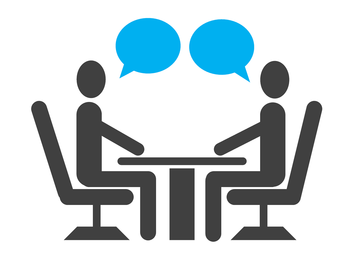
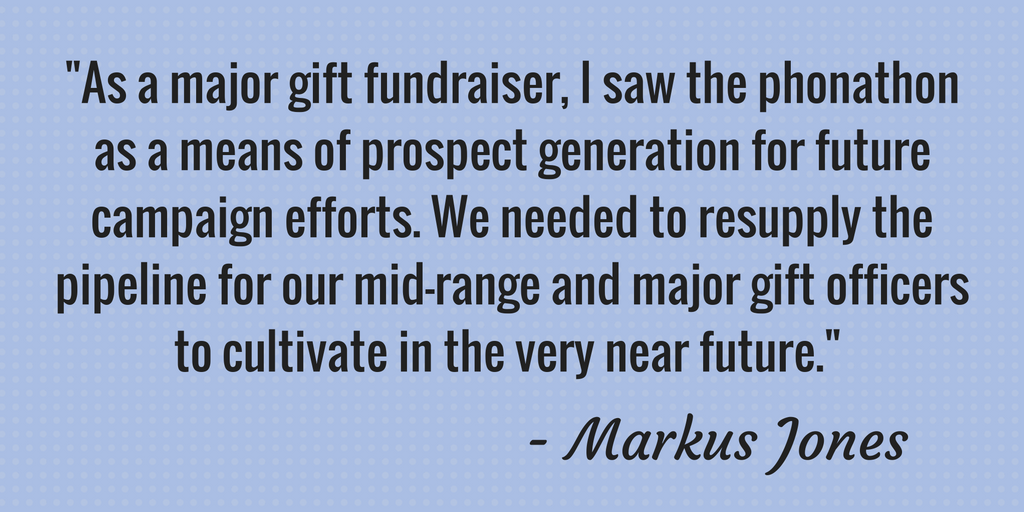
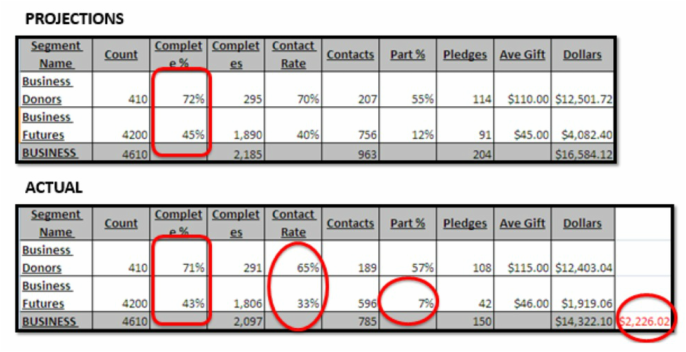

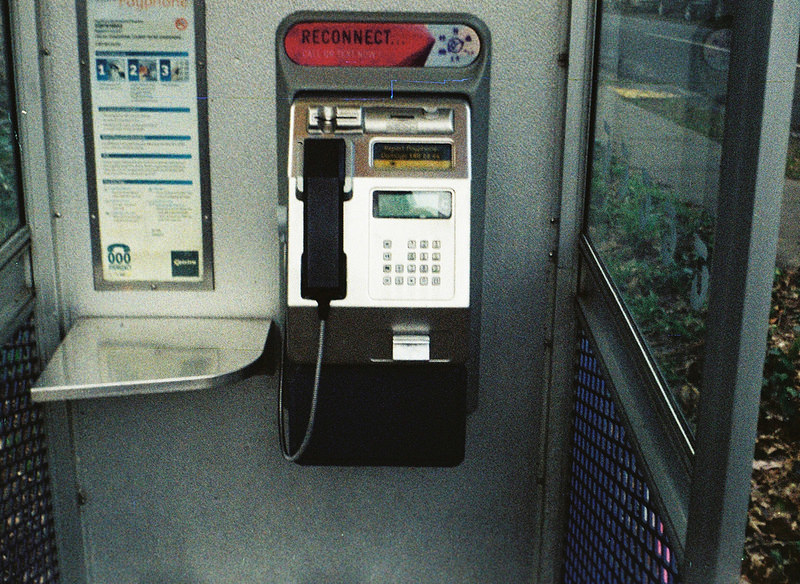
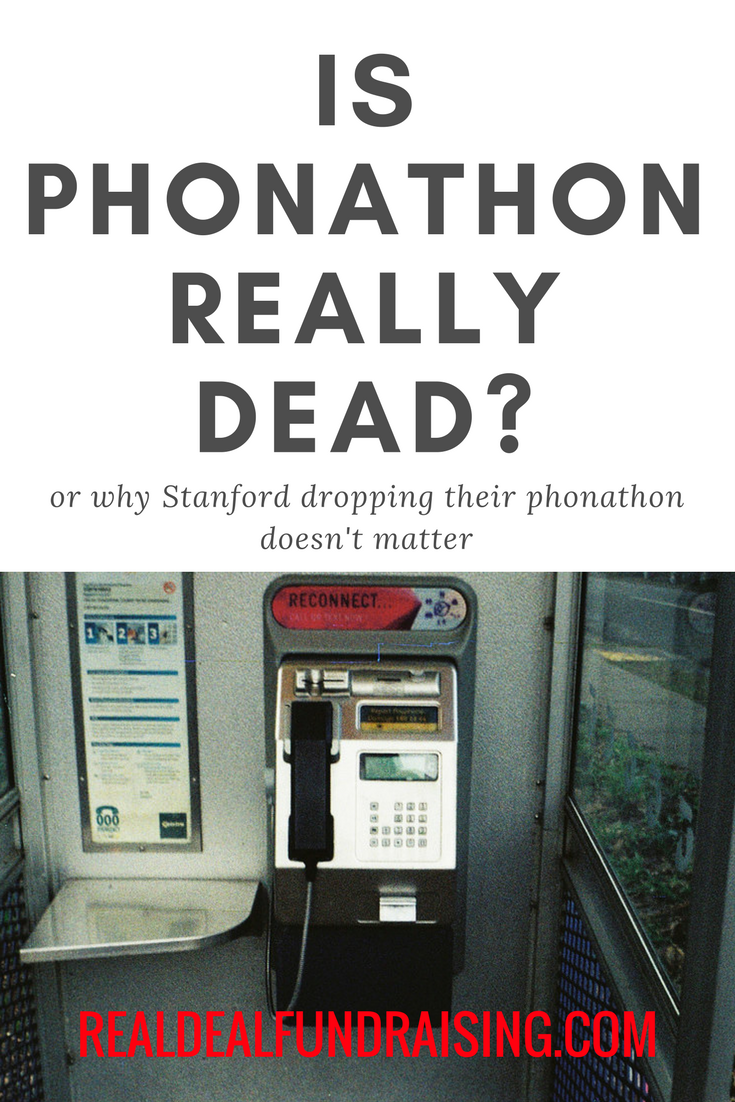
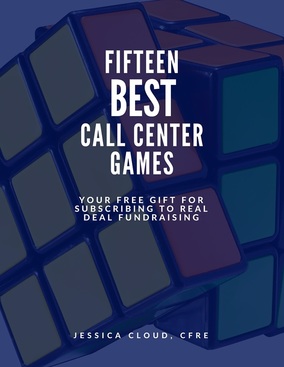
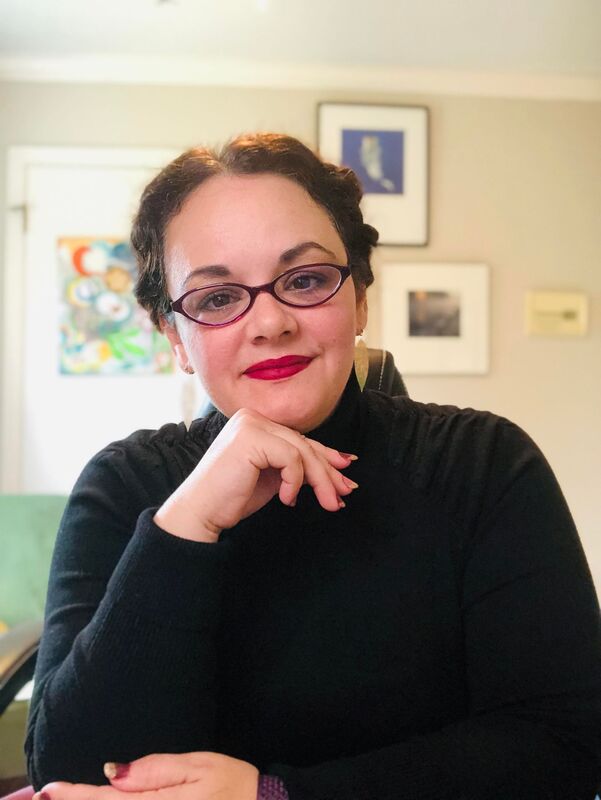
 RSS Feed
RSS Feed
